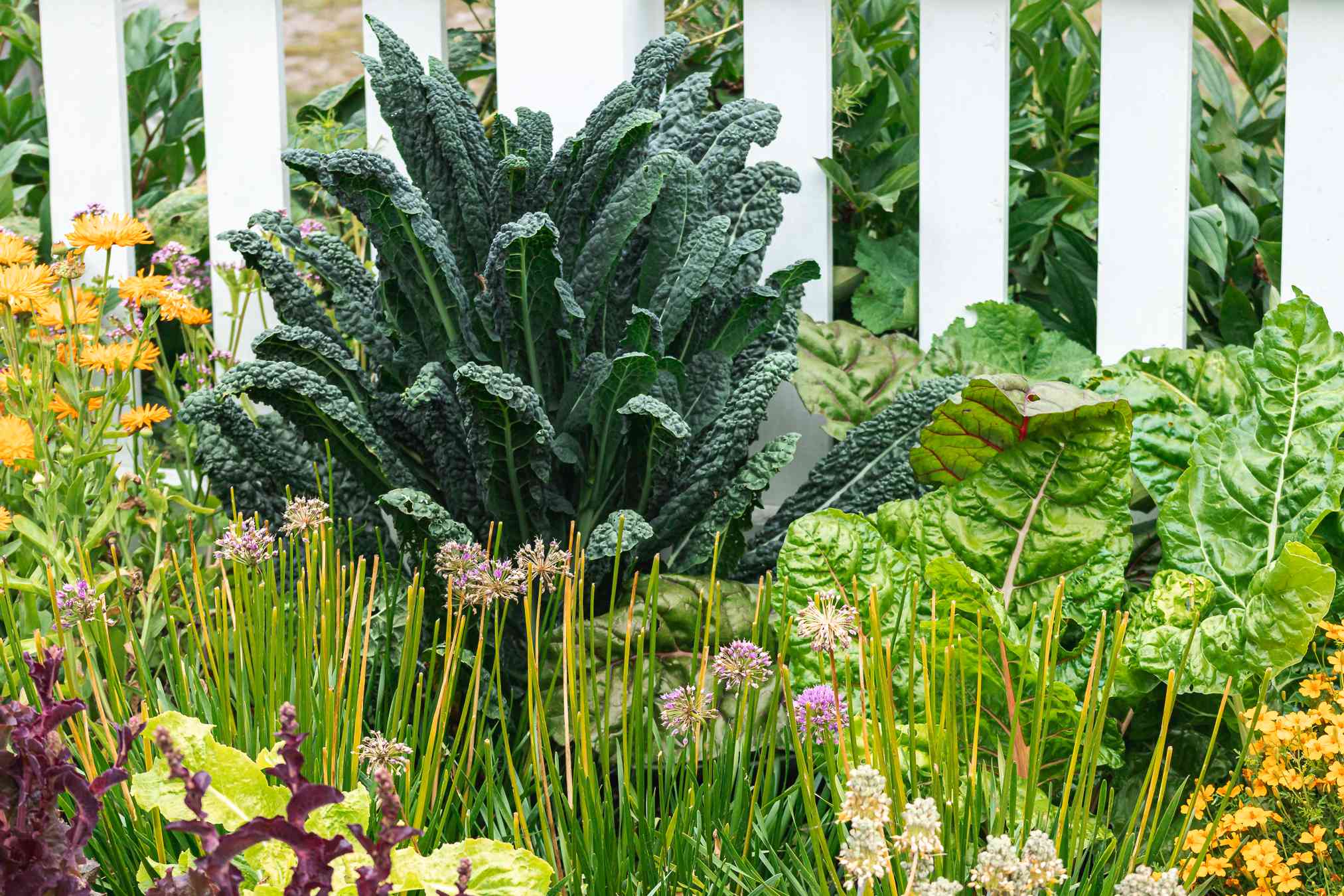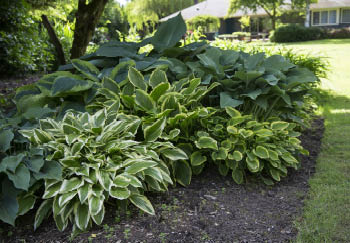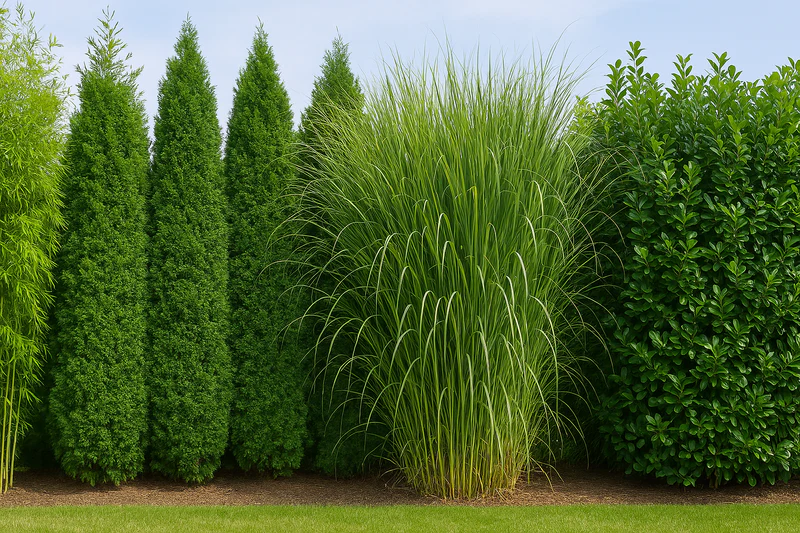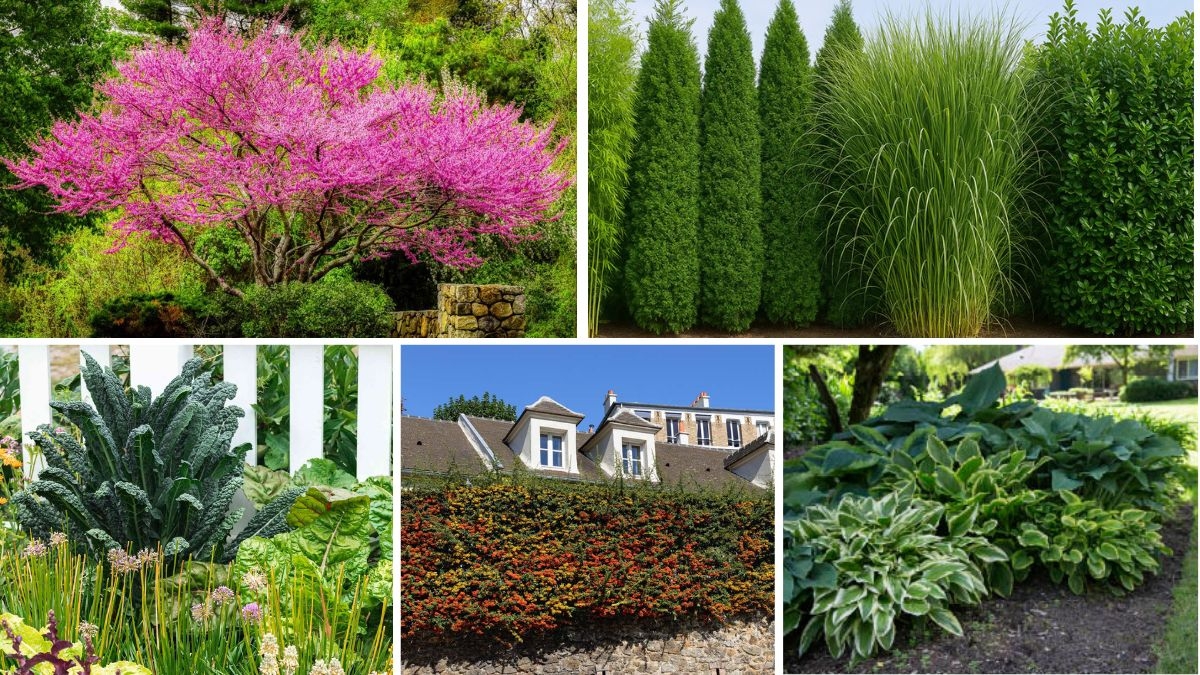Gardening is a rewarding hobby, but keeping your plants safe from pests, harsh weather, and soil erosion can be challenging. One of the most effective and eco-friendly solutions is to use fast-growing plants as natural protectors. These plants not only create a living barrier, provide shade, and improve soil health, but they can also repel harmful insects and animals without the use of chemicals.
This guide will explore the best fast-growing plants to protect your garden naturally, including their benefits, care tips, and how to strategically plant them for maximum impact.
1. Why Use Fast-Growing Plants for Garden Protection?

Fast-growing plants are more than just fillers; they play multiple roles in keeping your garden healthy:
- Soil Stabilization: Plants like grasses or legumes prevent erosion by holding soil with their roots.
- Wind and Sun Protection: Tall, dense plants shield delicate crops from strong winds and harsh sunlight.
- Pest Deterrence: Certain aromatic herbs and flowers repel insects naturally.
- Privacy and Safety: Fast-growing shrubs and hedges provide a living fence to keep animals out and add security.
- Biodiversity: These plants attract pollinators and beneficial insects, creating a balanced garden ecosystem.
Using fast-growing plants strategically creates a natural defense system, reducing the need for chemical fertilizers or pesticides.
2. Top Fast-Growing Plants to Protect Your Garden
1. Sunflower (Helianthus annuus)
Benefits:
Sunflowers grow rapidly, often reaching 6–10 feet in a single season. Their tall stalks create a natural windbreak and provide shade for smaller, delicate plants beneath. Sunflowers also attract pollinators and beneficial insects, which improve overall garden health.
Care Tips:
- Soil: Well-drained, nutrient-rich soil.
- Watering: Regular watering during dry periods.
- Sunlight: Full sun exposure is essential.
2. Marigold (Tagetes spp.)

Benefits:
Marigolds are not only colorful additions to your garden but also excellent natural pest deterrents. Their strong scent repels nematodes, aphids, and whiteflies. Planting marigolds around vegetables can help keep pests away naturally.
Care Tips:
- Soil: Well-drained soil, moderately fertile.
- Watering: Water regularly but avoid waterlogging.
- Sunlight: Full sun to partial shade.
3. Bamboo
Benefits:
Bamboo is one of the fastest-growing plants in the world, making it perfect for creating privacy screens and windbreaks quickly. Its dense foliage also deters animals from entering the garden.
Care Tips:
- Soil: Moist, well-draining soil.
- Watering: Keep soil consistently moist.
- Sunlight: Partial to full sun.
Tip: Choose clumping bamboo over running bamboo to prevent uncontrolled spread.
4. Nasturtium (Tropaeolum majus)
Benefits:
Nasturtiums are fast-growing annuals that act as a trap crop for aphids, attracting pests away from valuable vegetables. They also provide ground cover, preventing soil erosion and moisture loss.
Care Tips:
- Soil: Poor to average soil is sufficient.
- Watering: Water moderately, allowing soil to dry slightly between watering.
- Sunlight: Full sun for best growth.
5. Clover (Trifolium spp.)
Benefits:
Clover grows quickly and improves soil fertility by fixing nitrogen naturally. It also provides a soft ground cover, protecting the soil from erosion and suppressing weeds. Certain clover varieties attract pollinators, boosting overall garden productivity.
Care Tips:
- Soil: Adaptable to most soil types.
- Watering: Water during dry spells.
- Sunlight: Full sun to partial shade.
6. Lemon Balm (Melissa officinalis)

Benefits:
Lemon balm grows fast and has a strong lemony aroma that repels mosquitoes and some garden pests. Its dense growth also acts as a living mulch, retaining soil moisture and protecting smaller plants.
Care Tips:
- Soil: Well-drained, fertile soil.
- Watering: Keep soil moist but not soggy.
- Sunlight: Partial shade to full sun.
7. Corn (Zea mays)

Benefits:
Corn grows tall and quickly, making it an excellent windbreak for smaller crops. Its dense stalks can also serve as a natural trellis for climbing plants like beans.
Care Tips:
- Soil: Rich, fertile soil.
- Watering: Needs consistent watering during dry periods.
- Sunlight: Full sun exposure is crucial.
3. Companion Planting for Natural Protection

Fast-growing plants are most effective when combined strategically with other crops. This practice is known as companion planting, which maximizes their protective abilities:
- Sunflowers + Cucumbers/Beans: Tall sunflowers provide shade for climbing plants.
- Marigolds + Tomatoes: Marigolds repel nematodes that affect tomato roots.
- Clover + Vegetables: Clover enriches the soil, benefiting all nearby crops.
- Nasturtiums + Lettuce: Nasturtiums lure aphids away from tender greens.
By planning your garden layout carefully, you can use these plants to protect each other naturally, reducing the need for artificial interventions.
4. Additional Tips for Maximizing Protection
- Mulching: Combine fast-growing plants with organic mulch to retain soil moisture and suppress weeds.
- Regular Pruning: Trim plants like bamboo or lemon balm to prevent overgrowth and maintain airflow.
- Rotating Crops: Plant annual fast-growing species in different areas each year to improve soil fertility and prevent disease buildup.
- Water Management: Use drip irrigation to keep soil evenly moist without overwatering, reducing disease risk.
5. Benefits Beyond Protection
Using fast-growing plants in your garden doesn’t just protect your crops; it also provides other advantages:
- Improved Pollination: Attracts bees, butterflies, and other beneficial insects.
- Soil Health: Nitrogen-fixing and organic matter-rich plants enrich the soil naturally.
- Aesthetic Appeal: Adds color, height, and texture to the garden.
- Climate Moderation: Tall and dense plants provide shade, reduce wind stress, and create microclimates for delicate crops.
6. Conclusion
Creating a natural defense system for your garden doesn’t require chemicals, fencing, or expensive solutions. Fast-growing plants offer an eco-friendly, multifunctional, and beautiful way to protect your garden while enhancing its health and biodiversity. From the tall sunflowers that shield delicate seedlings to marigolds and nasturtiums that repel pests, incorporating these plants ensures your garden thrives naturally.
By understanding each plant’s needs and benefits, and strategically planting them in your garden, you can enjoy a sustainable, flourishing space that is both protected and productive. Not only will your crops grow better, but your garden will also become a vibrant, self-sustaining ecosystem—a true testament to the power of natural gardening.




Leave A Comment